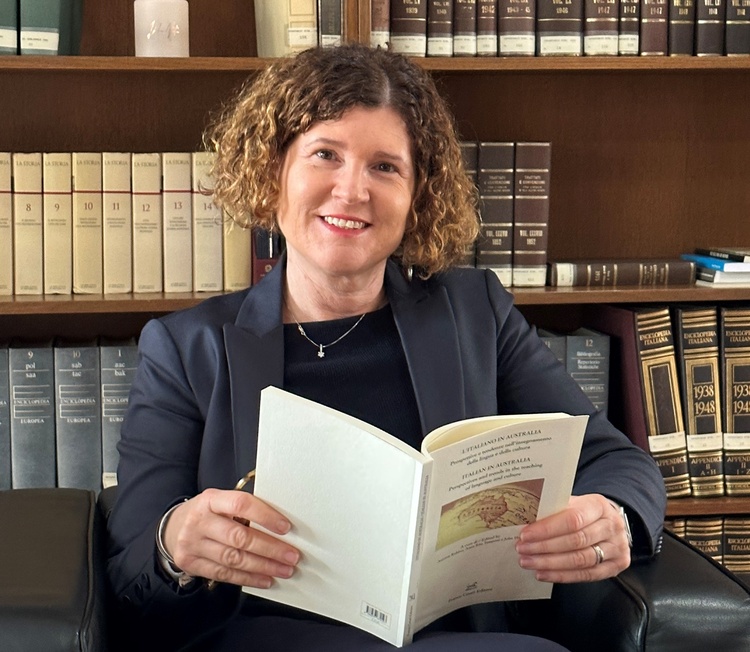CANBERRA - A long career in the education system, which began 30 years ago, has taken Biguzzi all the way to Australia, where last March she assumed the role of director of the Italian Embassy’s School and Culture Office.
For the past eleven years, Biguzzi has directed comprehensive institutes and high schools, and her most recent role in Italy was director of a language institute in her hometown of Cesena, “whose mission is to promote student mobility and transmit to students the intercultural skills to place themselves in international contexts”.
“That is why,” she explains, “when I communicated that it was my intention to move to Australia, my motivations were understood”.
The desire to challenge herself in a new and different educational context prompted Biguzzi to participate in the national selection process, in which she finished first, bringing her to Australia on a six-year term.
“It has always fascinated me to be able to bear witness to Italian culture abroad, to be a representative of our wonderful artistic, historical and literary heritage, which carries with it social and cultural values that make us proud.”
The welcome she received not only from her colleagues, but from the entire community impressed and excited her.
“When I meet someone and say I am Italian, I always feel warmth and enthusiasm,” says Biguzzi.
“Our culture exerts great fascination on people. Everyone says they are eager to visit our country.
“We need to work on this and make people aware of the many Italian excellences.
“Not only food, but also design, technology and our immense cultural heritage.”
In her first months of work, the director has been able to realise the quality of Italian teaching in Australia, noting that it is characterised by a great wealth of methodologies and strategies.
“The teachers follow good practices, and the level of competence is also very high,” she points out.
“Organisationally, the system is different, as is the program, although I have not spent enough time here to be able to say that I know the Australian school system in depth, partly because each Territory and State has its own characteristics.
“I hope to have time to appreciate the dynamism and results.”
One of the critical points to work on is educational continuity. Biguzzi points out the need to convey the importance of maintaining foreign language studies all the way up to the university level.
For her role, Biguzzi is tasked with coordinating the resources made available by the Ministry of Foreign Affairs and assisting the managing bodies as well as the broader cultural network.
“Understanding and knowing what the territory needs, in terms of resources, is a good challenge, demanding and stimulating.”
Biguzzi’s mandate, however, is not limited to the linguistic part. It also concerns culture, including the promotion of competitions and special projects organised with schools scattered throughout the ACT. One such event is the ‘Week of the Italian Language in the World’.
The call for entries for the Premio Italia, aimed at university students, has also recently been published. This year’s theme for the competition, which coincides with ‘Week of the Italian Language in the World,’ is ‘Italian and Sustainability’.
The winners will be announced on October 21 during the National Conference of Italian Teachers.
You can read the announcement of the competition here.












